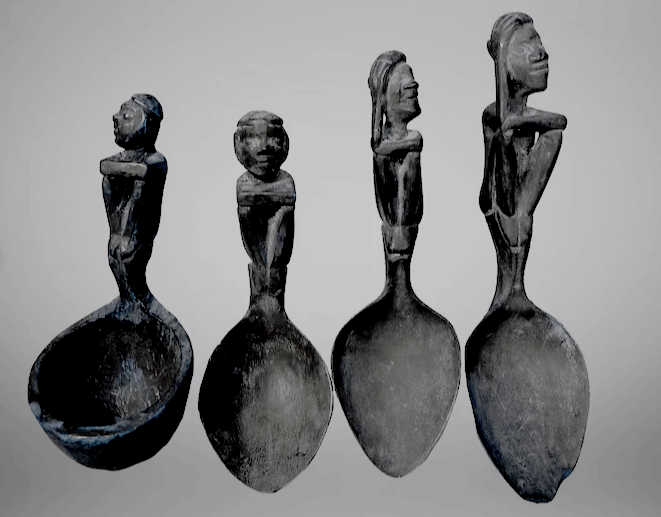Scooping up an heirloom called 'pakko'

Gracing the cover of Philippine Magazine's February 1934 issue, a wooden spoon with an anthropomorphic handle captured the imagination. Unlike typical utensils from the Western world, these spoons boasted unique designs, each echoing the rich tapestry of Ifugao folklore and way of life.
The Ifugao people, residing in the Mountain Province of northern Philippines, have flourished for millennia. Their famed rice terraces in Banaue, standing for over 2,000 years, attest to their enduring ingenuity. Implements like the pakko, or spoon, may date back as far as their rice cultivation practices.
In a detailed article by A.V.H. Hartendorp, the craftsmanship of these spoons is illuminated. Artisans in each household or clan meticulously carve handles depicting gods or legendary figures. Some portray scenes of maternal care or familial bonds.
In affluent Ifugao households, each member possesses their own spoon, prominently displayed when not in use. Men typically carry theirs in hip bags when venturing outside.
Passed down through generations as cherished heirlooms, a grandfather's or father's spoon holds significant value. Guests bestowed with the privilege of using these spoons are honored guests indeed.
Unique to the Ifugao culture, these spoons are a rarity in tribal Asia or Oceania. Their scarcity lends them a high market value, with intricately designed pieces fetching prices upwards of $200, sought after by collectors worldwide.
Furthermore, Ifugaos adhere to strict customs regarding spoon usage. It is customary to meticulously clean the spoon before and after meals, reflecting the importance of hygiene and respect.
In daily life, these spoons serve as vessels for scooping food or water from wooden bowls. While familial dining customs dictate sharing from a communal bowl, etiquette relaxes for visitors.
Many of these exquisite spoons have found their way into prestigious museums and private collections globally, serving as tangible reminders of Ifugao heritage and craftsmanship.